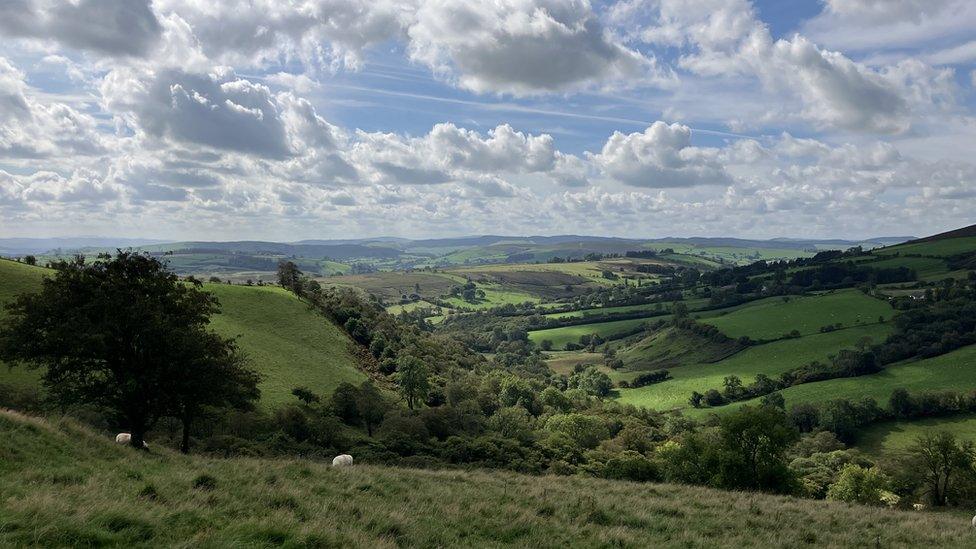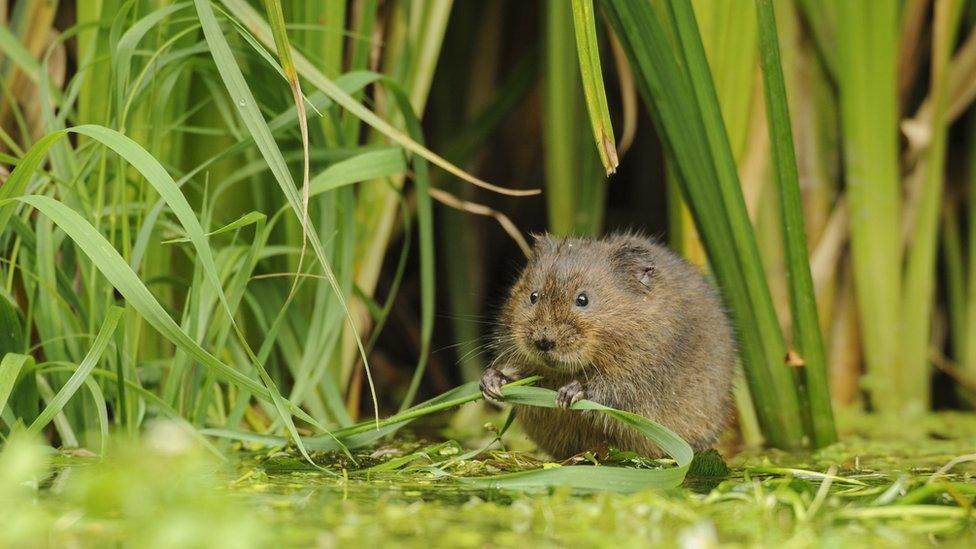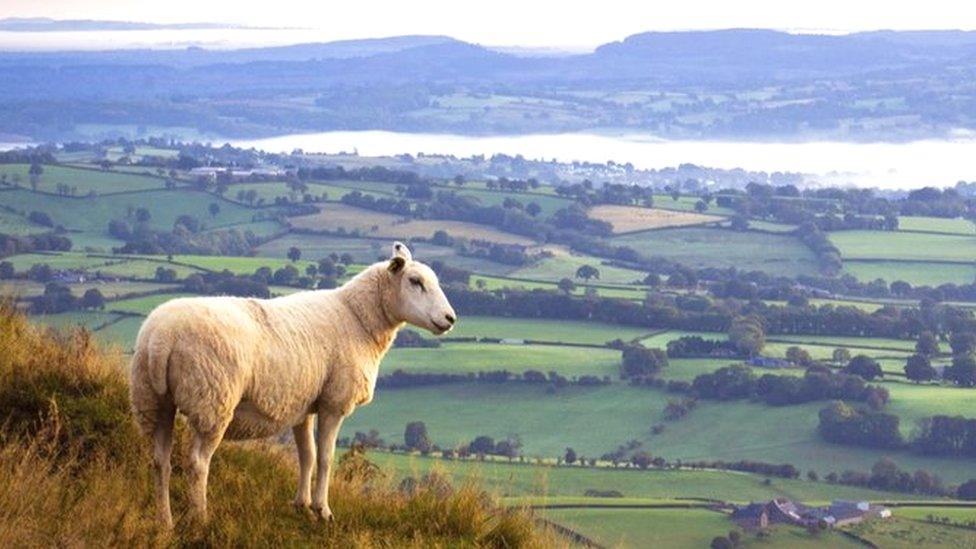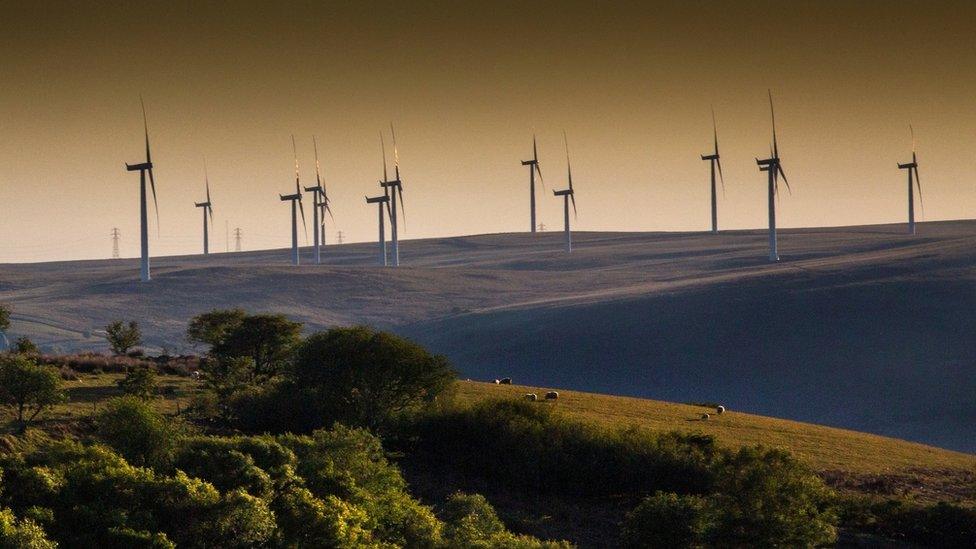Environment: Wales-England Marches plan to protect nature
- Published
- comments

The Marches make up an area roughly the size of 123,500 football pitches
A partnership to safeguard and restore part of the rural landscape in Wales and England has been launched.
The cross-border project, Wilder Marches, aims to help nature struggling in the face of intensive farming and extensive forestry plantations.
It will also protect and promote strongholds of species like freshwater pearl mussels, pine marten and curlew.
It involves wildlife trusts in Montgomeryshire and Radnorshire, and Shropshire, and Herefordshire.
They will concentrate on approximately 247,000 acres - roughly the size of 123,500 football pitches - straddling the Welsh-English border.
Containing rivers such as the Lugg and the Teme, the area is home to long-established rural communities and dotted with ancient woodlands, heathlands and peatland.
There are also flower-rich meadows, wood pasture and a special upland habitat of scrub and grassland, known as ffridd in Welsh.
It is also hoped by both creating and restoring these lost habitats the risk of flooding will be reduced and the quality of water improved.
The Marches also have areas of intensive farming, as well as extensive forestry plantations where nature is struggling to thrive.
In collaborating with farmers and landowners the initiative plans to encourage regenerative methods of working the land, including conservation grazing with native breeds and the promotion and development of local sustainable food production.It is hoped the current reform of farm subsidies will present an opportunity to develop these new business models.

The project hopes to help water voles - now confined to a few isolated sites and facing extinction
Iolo Williams, a wildlife TV presenter and vice-president of the umbrella body The Wildlife Trusts, said: "I adore the Marches and this exciting new project presents a fantastic opportunity to restore this once abundant landscape along the Welsh-English border.
"I'd love to see the fields of the Marches full of curlew, lapwing and yellow hammer, ponds brimming with newts and frogs, and flower-rich hay meadows buzzing with insects once again.
"In Wales we've lost iconic birds such as the nightingale and corn bunting - and water voles are now confined to a few isolated sites and are threatened with extinction.
"Wilder Marches gives us a vision to help nature that's in crisis and I urge everyone to support this initiative."
Related topics
- Published12 August 2023

- Published3 May 2023

- Published3 January 2023
